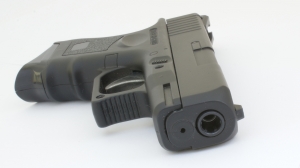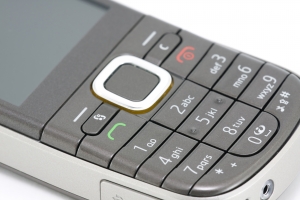 Recently three school buses were involved in a car accident in Prince Georges County, Maryland where upwards of 25 students were injured. And just last week, a central Florida community was rocked by the news that 9 year old student was killed in a school bus accident, along with 15 other students being injured in the crash. These tragic accidents appear to be showing up in the news more frequently, which begs parents and lawmakers to question whether Maryland school buses are actually safe and what the legislature could do to make them safer.
Recently three school buses were involved in a car accident in Prince Georges County, Maryland where upwards of 25 students were injured. And just last week, a central Florida community was rocked by the news that 9 year old student was killed in a school bus accident, along with 15 other students being injured in the crash. These tragic accidents appear to be showing up in the news more frequently, which begs parents and lawmakers to question whether Maryland school buses are actually safe and what the legislature could do to make them safer.
One potential avenue that lawmakers could explore would be to require Maryland school busses to be equipped with seat belts. At lest five states require the use of seat belts on school buses to mitigate injuries resulting from a bus accident. While Maryland does require automobile passengers to wear seat belts, there is no seat belt law on the books for Maryland school busses. One possible reason that there has not been a successful push in the legislature for school bus seat belts is the lack of empirical data proving that seat belts would actually make school busses safer. There are simply not enough car accidents involving school buses in Maryland to adequately support a study.
Continue reading →
 Criminal Defense Lawyer Blog
Criminal Defense Lawyer Blog


 Crime victims in Baltimore County are now able to file police reports online, instead of reporting the crime to an officer in person. Baltimore County police say the online system will have various benefits for victims of minor crimes and for the police department. Crime victims will be able to quickly generate reports for incidents such as theft and destruction of property, which insurance companies typically require before a claim can be filed. The Baltimore County police will also be able to conserve resources by not dispatching officers to minor crime scenes. Other reports that may now be filed online in Baltimore County include hit and run car accidents, lost property, and abandoned motor vehicles.
Crime victims in Baltimore County are now able to file police reports online, instead of reporting the crime to an officer in person. Baltimore County police say the online system will have various benefits for victims of minor crimes and for the police department. Crime victims will be able to quickly generate reports for incidents such as theft and destruction of property, which insurance companies typically require before a claim can be filed. The Baltimore County police will also be able to conserve resources by not dispatching officers to minor crime scenes. Other reports that may now be filed online in Baltimore County include hit and run car accidents, lost property, and abandoned motor vehicles. Recently a controversial Maryland gun law was declared unconstitutional in federal court. The decision left gun supporters and opponents alike arguing over the possible impacts on violent crime such as robbery, burglary, and even murder. The law required all Maryland residents to prove a “good and substantial reason” to be able to legally carry a handgun outside of the home in order to be granted a gun permit. The lawsuit began when a Baltimore man sued the state of Maryland in federal civil court after his application to renew his handgun carry permit was denied. The Baltimore man was joined in the lawsuit as plaintiff by the Second Amendment Foundation, a non-profit organization dedicated to the preservation of the right to bear arms. The plaintiffs prevailed, and provided the case is not successfully appealed, the Maryland legislature must modify this gun law.
Recently a controversial Maryland gun law was declared unconstitutional in federal court. The decision left gun supporters and opponents alike arguing over the possible impacts on violent crime such as robbery, burglary, and even murder. The law required all Maryland residents to prove a “good and substantial reason” to be able to legally carry a handgun outside of the home in order to be granted a gun permit. The lawsuit began when a Baltimore man sued the state of Maryland in federal civil court after his application to renew his handgun carry permit was denied. The Baltimore man was joined in the lawsuit as plaintiff by the Second Amendment Foundation, a non-profit organization dedicated to the preservation of the right to bear arms. The plaintiffs prevailed, and provided the case is not successfully appealed, the Maryland legislature must modify this gun law.  A federal judge has found a controversial Maryland gun law unconstitutional pursuant to a recent ruling. The key issue of the handgun law is the section that requires Maryland residents to show a “good and substantial reason” to carry a gun outside of their home in order to receive a permit from the state. A civil lawsuit challenging the firearm law was filed in the United States District Court for the District of Maryland, and judge Benson Everett Legg presided over the case. The plaintiffs consisted of multiple parties including the Second Amendment Foundation, a non-profit organization which promotes gun possession and ownership rights, and a Baltimore County resident.
A federal judge has found a controversial Maryland gun law unconstitutional pursuant to a recent ruling. The key issue of the handgun law is the section that requires Maryland residents to show a “good and substantial reason” to carry a gun outside of their home in order to receive a permit from the state. A civil lawsuit challenging the firearm law was filed in the United States District Court for the District of Maryland, and judge Benson Everett Legg presided over the case. The plaintiffs consisted of multiple parties including the Second Amendment Foundation, a non-profit organization which promotes gun possession and ownership rights, and a Baltimore County resident. Each year thousands of defendants are arrested in Maryland for possession of marijuana and other drugs such as cocaine and and prescription pills. The costs of enforcing Maryland marijuana laws and other drug laws were revealed in part one of this post. In part two we will discuss the possible positive effects of decriminalizing marijuana in Maryland.
Each year thousands of defendants are arrested in Maryland for possession of marijuana and other drugs such as cocaine and and prescription pills. The costs of enforcing Maryland marijuana laws and other drug laws were revealed in part one of this post. In part two we will discuss the possible positive effects of decriminalizing marijuana in Maryland. Prison inmate’s sentences are currently up for debate in the Maryland legislature, but it’s the inmates who have been doing the talking. A bill before the Maryland State Senate calls for an automatic reduction in the amount of good-time credits a sentenced inmate typically receives by the Maryland Division of Corrections if that inmate is caught possessing a cell phone while incarcerated. The bill was presented to the Legislature by Senator Shank, a republican from Washington county.
Prison inmate’s sentences are currently up for debate in the Maryland legislature, but it’s the inmates who have been doing the talking. A bill before the Maryland State Senate calls for an automatic reduction in the amount of good-time credits a sentenced inmate typically receives by the Maryland Division of Corrections if that inmate is caught possessing a cell phone while incarcerated. The bill was presented to the Legislature by Senator Shank, a republican from Washington county.